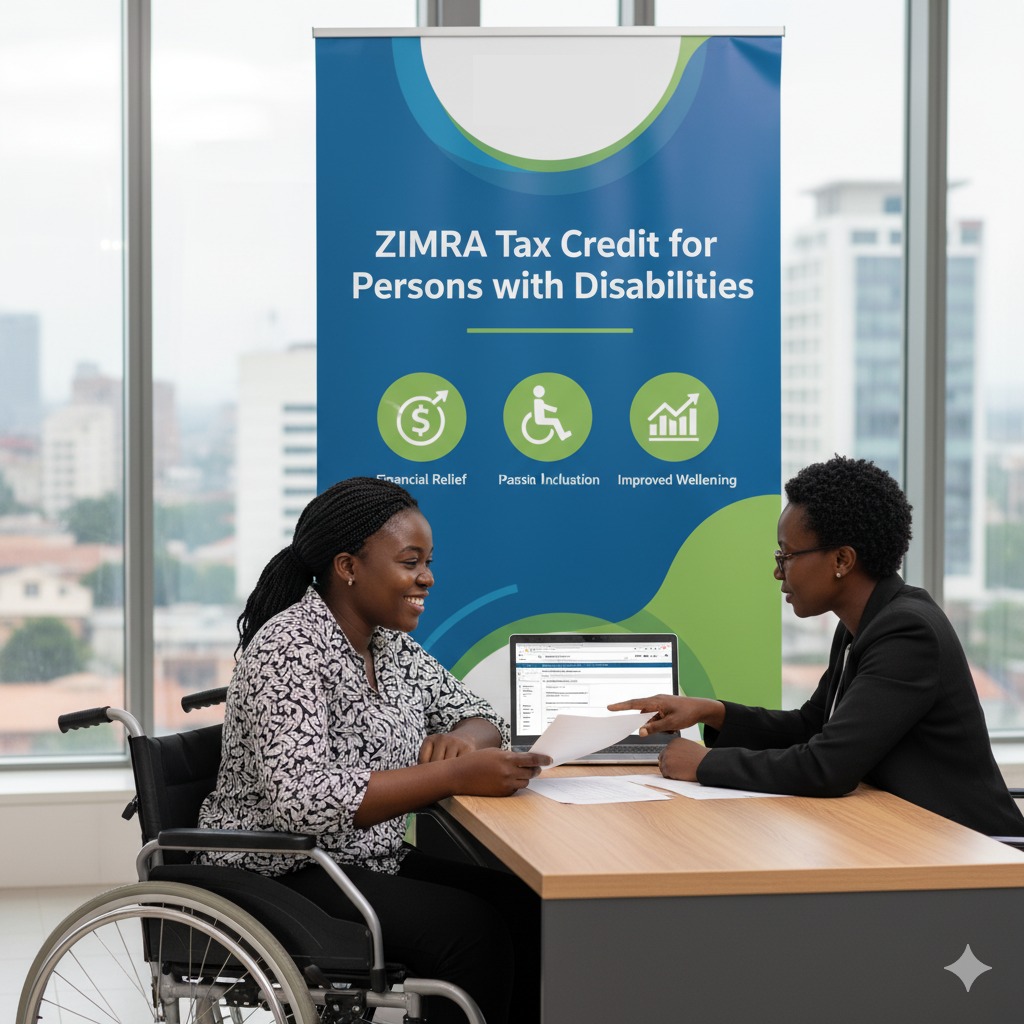
Understanding ZIMRA’s Tax Credit for Persons with Disabilities
The Zimbabwe Revenue Authority (ZIMRA) offers various incentives to ease the financial burden on taxpayers, and one of the most significant is the Mentally or Physically Disabled Persons Tax Credit. This provision is crucial for promoting the welfare and financial independence of qualifying individuals and their families.
If you, your spouse, or your dependent child lives with a substantial, non-temporary disability, you may be eligible to significantly reduce your annual tax liability.
Here is a breakdown of what this tax credit entails, who qualifies, and how you can claim it.
What is the Disabled Persons Tax Credit?
The Mentally or Physically Disabled Persons Tax Credit is a specified amount that is deducted directly from the income tax with which a taxpayer is chargeable.
It is not a deduction from your income before tax is calculated, but a credit that reduces the final tax bill you owe. This directly lowers your tax liability and can result in significant annual savings.
Who Qualifies for the Credit?
The credit is designed to benefit taxpayers and families supporting individuals with long-term disabilities:
- The Taxpayer: Any individual taxpayer who is proven to the satisfaction of the Commissioner to be mentally or physically disabled to a substantial degree, provided the disability is not temporary or transitional.
- A Child: The credit can be claimed by a taxpayer for their dependent child who meets the same criteria.
How to Claim the Credit
To successfully claim this credit, certain steps and conditions must be met:
- Residency: The taxpayer must have been ordinarily resident in Zimbabwe at any time during the period of assessment.
- Medical Evidence: You must secure a detailed letter from a specialist medical doctor. This letter must clearly state the nature and degree of the disability.
- ZIMRA Directive: The employee or taxpayer must then apply for a written directive from their nearest ZIMRA office, submitting the specialist medical report as proof.
- Permanence: Crucially, a person is regarded as disabled for this credit only if the disability is not of a temporary or transitional nature.
Processing this Tax Credit in Belina Payroll
Processing the disability tax credits in Belina is easy. All you need to do is update the employee’s master details to reflect the disability start date and it will automatically credit the employee with the tax credit. Refer to our Help and Manual for the detailed steps.
What is the Value of the Credit?
The amount of the credit is fixed per year of assessment. According to Finance Act [Chapter 23:04], the specified amount of credit to be deducted from the income tax payable by a qualifying taxpayer is USD$900 or ZWG equivalent.
Note that these figures are typically revised in the national budget and taxpayers should always verify the current, prevailing amount with ZIMRA.
Important Considerations
- Non-Apportionment: The tax credit cannot be apportioned. This means that regardless of when the disability commenced during the tax year, the full annual credit is applicable.
- Transferability Between Spouses: The credit is transferable. If a portion of the credit applicable to one spouse is not fully used to reduce their income tax, the remaining portion can be transferred and applied as a deduction against the income tax payable by the other spouse.
Conclusion
The Mentally or Physically Disabled Persons Tax Credit is an essential measure by ZIMRA to offer financial relief and support to individuals and families managing long-term disabilities.
If you believe you or your dependent child qualifies, it is imperative to secure the necessary medical documentation and apply for the written directive from your local ZIMRA office promptly. Don’t leave money on the table—ensure you are benefiting from every relief you are legally entitled to. By Ashlene Moyo



